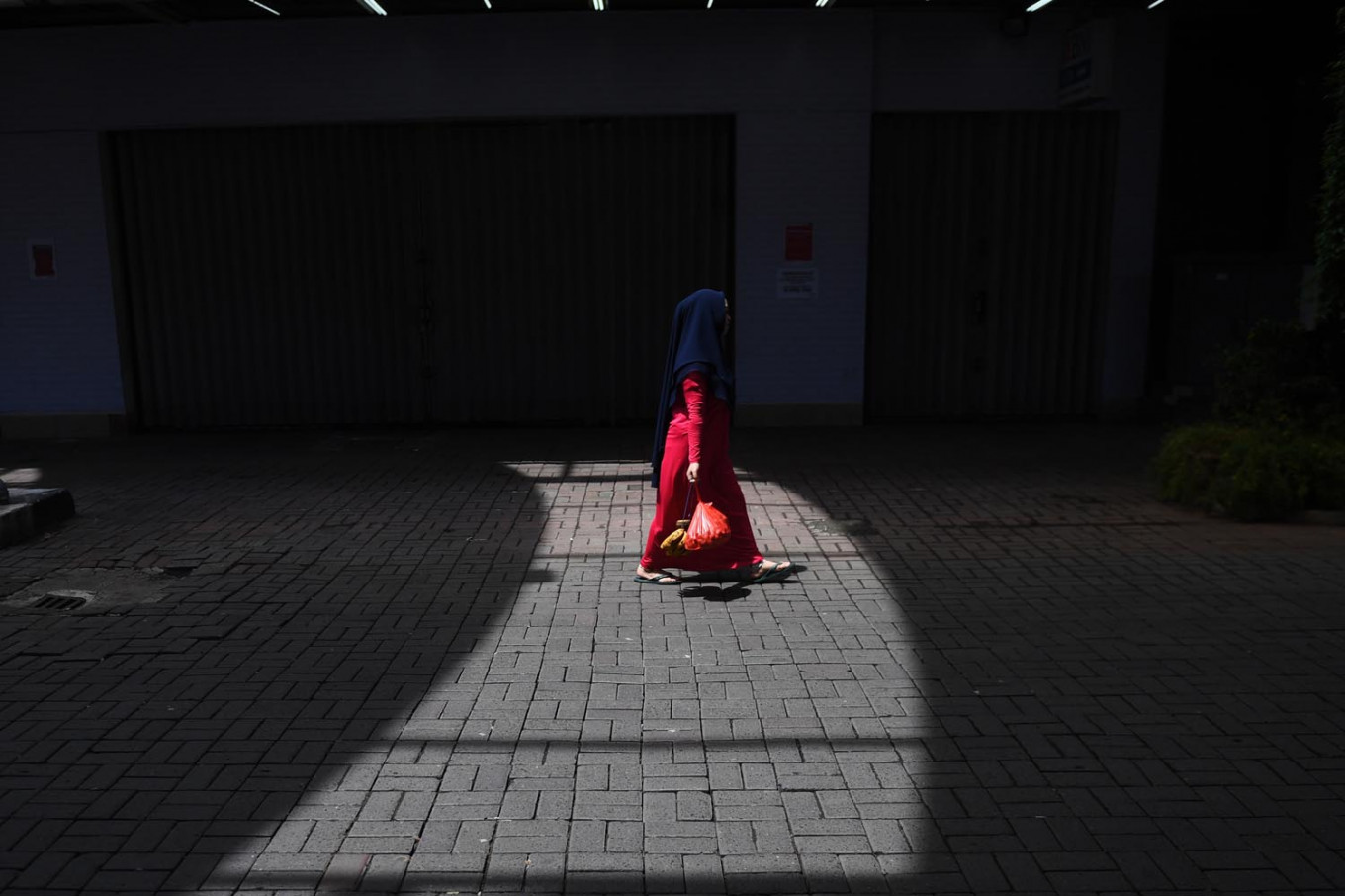Popular Reads
Top Results
Can't find what you're looking for?
View all search resultsPopular Reads
Top Results
Can't find what you're looking for?
View all search resultsGDP to contract for first time since 1998
The government has revised its gross domestic product (GDP) outlook down to an annual contraction of between 0.6 percent and 1.7 percent.
Change text size
Gift Premium Articles
to Anyone
I
ndonesia’s annual gross domestic product (GDP) is set to contract for the first time since the 1998 Asian financial crisis as the government struggles to control the COVID-19 pandemic and contain its economic fallout.
Finance Minister Sri Mulyani Indrawati said the government had revised its gross domestic product (GDP) outlook down to an annual contraction of between 0.6 percent and 1.7 percent as the uncertainty surrounding the pandemic had taken a significant toll on consumption and business investment.
The country’s economy shrank by 13.13 percent in 1998 before rebounding to 0.79 percent growth the next year.
“Several indicators of economic activity show that the economic recovery is still at a very early stage and remains very fragile,” Sri Mulyani told reporters during a virtual press conference on Tuesday. “We will continue to use the state budget to minimize the fallout of the pandemic, but it must be coupled with recovery in consumption and investment for the economy to fully recover.”
The rupiah had fallen 0.58 percent to Rp 14,785 against the United States dollar as of 3 p.m. Jakarta time on Tuesday, following the government’s announcement. The Jakarta Composite Index (JCI), a measure of the Indonesia Stock Exchange (IDX), fell 1.31 percent during the trading day.
The government previously expected the economy to shrink by 1.1 percent at worst or grow by 0.2 percent at best, but several indicators, including retail sales, investment and the consumer confidence index, pointed to a slower economic recovery from the second quarter contraction of 5.32 percent. The country's economy grew 5 percent last year.
The government is struggling to control the pandemic as virus cases continue to rise. The country announced 4,071 new infections on Tuesday, bringing the total recorded cases to more than 252,900. A record high one-day death toll of 160 was reported on the same day. At least 9,800 people have died of COVID-19 in Indonesia since cases were discovered in the country in March, official data shows.
The government expects consumption, which accounts for more than half of the nation’s GDP, to remain weak and to contract by between 1 percent and 2.1 percent. It expects investment to contract by between 4.4 percent and 5.6 percent as demand and economic activity remain cool.
Indonesia’s exports are expected to contract by between 5.5 percent and 9 percent and imports by between 11.7 percent and 17.2 percent amid slowing global trade.
Government spending will be the only component of GDP to grow this year – between 0.6 percent and 4.8 percent – as the government ramps up spending to provide economic relief, Sri Mulyani added.
“We will use our fiscal policy as a countercyclical measure to boost the economy as consumption and investment will all be in negative territory,” she said.
As of August, state spending had risen by 10.6 percent year-on-year (yoy) to Rp 1.53 quadrillion (US$103.8 billion), 56 percent of the year’s target. Central government expenditure rose by 14 percent yoy to Rp 977.3 trillion, driven by higher social aid and stimulus spending.
The government had spent 36.6 percent of the Rp 695.2 trillion (US$46.89 billion) COVID-19 stimulus budget as of Sept. 19.
As of August, the country had collected Rp 1.03 quadrillion in state revenue, a 13.1 percent yoy decease following a drop in both tax revenue and non-tax income, resulting in a budget deficit of Rp 500.5 trillion, or 3.05 percent of GDP.
The main risk for Indonesia's economy stems from the prolonged pandemic, which will weaken the economic outlook and people's confidence, said Bank Central Asia (BCA) economist David Sumual on Tuesday.
"Indonesia's economic recovery has flattened since August and is currently in a recessionary phase," he told The Jakarta Post. "The economic outlook will depend on [the government’s] pandemic handling and fiscal policy going forward as investment and trade have tumbled."
“Countries with more stringent virus controls, such as China and Vietnam, have proven that their economy can recover faster and more healthily, as well as avoid a recessionary trap,” Bank Permata economist Josua Pardede told The Jakarta Post, adding that the continuing rise of cases in Indonesia and the reimplementation of large-scale social restrictions in Jakarta had dragged down the GDP outlook.
He said the government would need to ramp up its pandemic response, accelerate stimulus spending and ensure the availability of vaccines by next year to support the economy and revive consumer confidence. “Vaccines will be the most crucial factor in returning confidence to the economy.”










